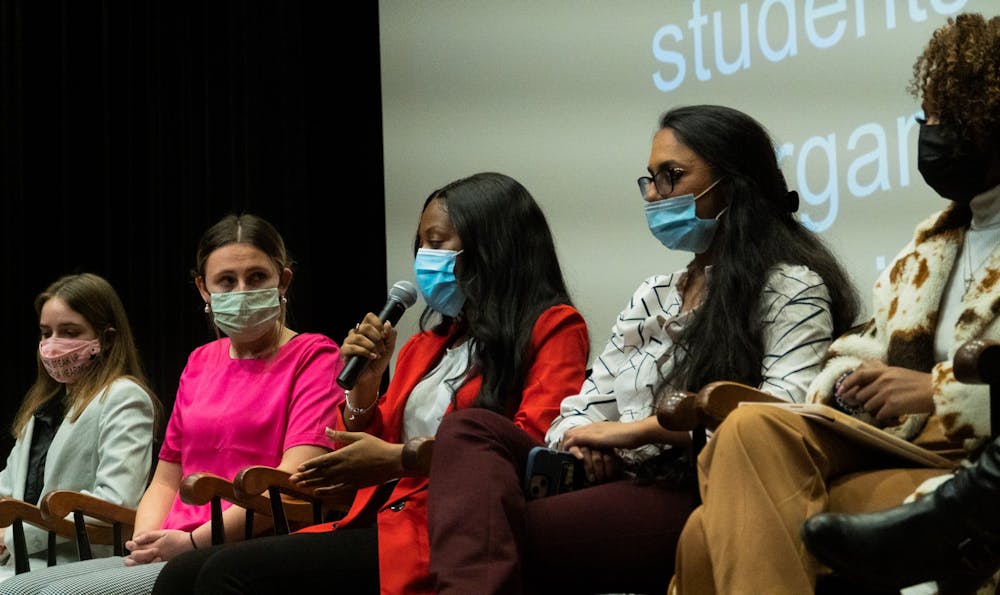Members of a student leader panel held Monday said USC has not been transparent or quick enough in its efforts to improve inclusivity on campus.
The panelists, hosted by the student government and freshman council, acknowledged that USC is taking steps to help underrepresented communities on campus but said the university should be quicker in implementing change.
Isabelle Bordaus, a third-year social work student, said USC does not adequately address the problems of students with disabilities on campus. Bordaus is the president of Delta Alpha Pi, an academic honor society for students with disabilities.
"We have about over 3,000 members of the disabled community on campus, and there is little representation of us anywhere," Bordaus said.
Borduas also said it's important that the "able-bodied community" speak up for students with disabilities.
Courtney McClain, the president of South Carolina's NAACP Youth and College Division, criticized USC's lack of transparency and said students don't always know what the university's intentions are.
"We should not have the Post and Courier, the State and all of these different media groups leaking information that should have been just given to the students directly," McClain said. "We have the façade that we're doing things, but when it comes to action, we're not actually implementing anything."
McClain also said USC is only doing what is comfortable and convenient when implementing change. She said some issues are "swept under the rug."
The panelists also discussed how students can lobby USC leaders to follow through on the changes the university discussed.
Fourth-year international business student, Lasya Katta, is the cabinet secretary of inclusion and equity. She said there should be a closer relationship between the student government and the faculty senate.
"I know on multiple occasions, we wanted information to pass through, and we haven't heard back from faculty senate," Katta said. "I think too often — this is a big problem that we face — where we have ideas, we have action items to take, but we need the go through or we need information, and we're just not getting it."
McClain said USC sometimes treats student legislation as symbolic and does not implement it. She said students need to put pressure on USC so the legislation is implemented.
"A lot of times it just falls onto deaf ears and you think 'Oh my gosh, we did this great thing that passed the Senate,' and then it's nowhere to be seen in the actual campus," McClain said.
Panelists also gave advice on how to handle people who do not follow inclusivity standards and how students should try to educate their peers on inclusivity. The panelists said being confrontational with people that are not being inclusive is less productive than sitting down with them and trying to educate them.
Bordaus said starting from their perspective and telling them why what they are doing is wrong is a good place to start.
McClain agreed and said that calling someone out on social media is not productive because that makes a person defensive and they do not learn why they are being called out. She said messaging them individually and showing them your side is more productive.
"When you're educating people, there's a way to do it," McClain said."We need to be able to do it in a respectful manner that's productive.

